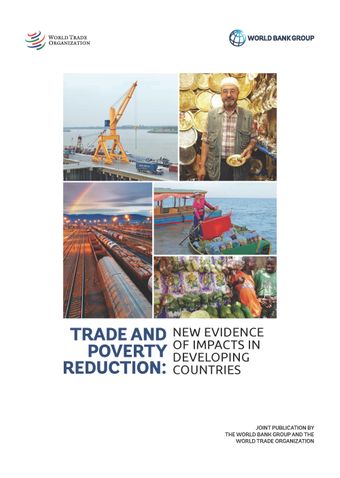- Home
- Books
- Trade and Poverty Reduction
- Chapter
Gender Welfare Effects of Regional Trade Integration on Households in Ghana

- De : World Trade Organization
- Source: Trade and Poverty Reduction , pp 36-57
- Publication Date: décembre 2018
- DOI: https://doi.org/10.30875/c18f44fc-en
- Langue : Anglais
Over the past two to three decades, a number of developing countries have pursued regional economic integration to harmonize trade policies and increase their weight in global trade. Economic integration, particularly in Africa, has also been seen as a way to diversify the structure of African economies, boost intra-African trade and investment, build supply capacity, and sustainably reduce poverty (Osakwe, 2015). These integration efforts have resulted in the creation of regional blocs such as the Economic Community of West African States (ECOWAS), West African Economic and Monetary Union (WAEMU), Common Market for East and Southern Africa (COMESA), Economic Community of Central African States (ECCAS), Central African Economic and Monetary Community (CEMAC), Southern African Customs Union (SACU), and Arab Maghreb Union (AMU). The trade-related objectives of these blocs include the establishment of custom unions, with a common external tariff (CET) as a major trade policy instrument.
-
From This Site
/content/books/9789287045225c004dcterms_subject,pub_countryId-contentType:WorkingPaperSeries -contentType:Periodical -contentType:BookSeries -contentType:ReportSeries105


